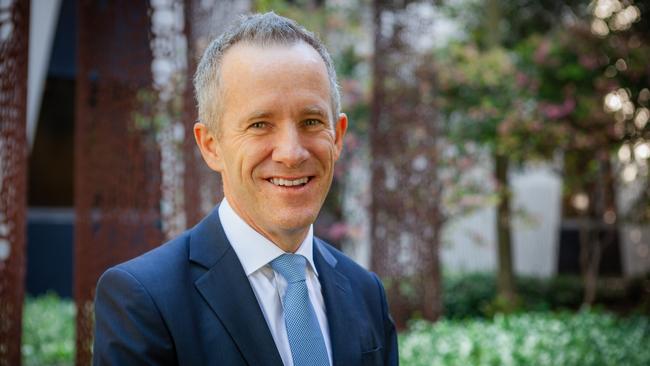Fee-earners, grads in big demand at law firms as M&A activity
There are plenty of opportunities for graduates and lawyers with a few years’ experience as firms invest big to meet demand. Here’s how firms fare with fee-earners and grads.

Law firms are investing big money and long hours to keep up with demand, through recruitment and in opening or bolstering new areas of business.
Fee-earners — lawyers with a few years of experience under their belts — are in demand and so are graduates, although as with partners there was little weighted average growth when the firms in The Australian Legal Partnership Survey were taken as a whole. Growth of full-time equivalent partners was 0.11 per cent over 12 months to 1 July, while fee-earner growth was 0.23 per cent and graduate growth was 2.47 per cent.
However, individual firms’ performances varied widely and the figures are only part of a picture that includes intense competition for lawyers at sub-partner level as reported on Tuesday and to establish or consolidate in lucrative practice areas.

Herbert Smith Freehills executive partner Andrew Pike said the continued boom in mergers and acquisitions and transactional work meant corporate lawyers were in demand.
“Demand is also strong in disputes and regulatory practices due to an increase in investigations and regulatory work, and multiple class action claims continuing to be brought,” Mr Pike said.
“Some of the greatest challenges our clients face are now technology-driven.
“We are experiencing a strong uptick in demand for lawyers with digital expertise. Our digital law group is helping clients from all sectors. When recruiting, we are increasingly looking for people at all levels who possess skills in digital law.”
Ashurst’s risk advisory consulting division has been in demand, as well as its NewLaw division, Ashurst Advance, which global chief executive Paul Jenkins attributed to “client demand for greater efficiency and innovative solutions through the use of technology and alternative resourcing”.
Lander & Rogers’ chief executive partner, Genevieve Collins, was also among those highlighted this development, saying there was rapid growth in a range of legal specialisations including “all aspects of the digital economy” as well as construction and infrastructure, real estate, insurance and both M & A and equity capital markets.
“The latter areas are the result of accumulated capital driving new investment following a period of inactivity,” Ms Collins said.
“We anticipate demand for legal support related to commercial disputes to increase in 2022 because of looming interest-rate pressure. We’re also investing early in emerging specialisations including space law and expanding offerings in climate change and ESG.”
ESG was also a focus at Corrs Westgarth Chambers, where chief executive Gavin MacLaren also noted a “concerted effort on continuing to build our presence across corporate, litigation, banking and finance”.
The multidisciplinary practices were finding the tenor of the times suits them: “Client appetite for legal and integrated business solutions is greater than ever,” PwC Australia legal leader Nick Brown said. “During 2022, we have seen particular growth in our projects, workplace law, and financial services regulatory practices.” They have also recently established a planning and environment practice.
KPMG Law national leader Kate Marshall said the focus would be on “areas such as wage underpayment, data breaches, regulatory reform, privacy in a digitising world, together with the shifts that digitisation is bringing to our clients’ operating models as well as the transformation of the in-house legal function itself”.

“These key demand areas mean we are recruiting employment lawyers, data and cyber lawyers, regulatory lawyers, government lawyers and legal operations and technology experts – this last group may or may not be lawyers. We are always on the lookout for great M & A and transactional lawyers,” Ms Marshall said.
DLA Piper Australian managing partner Amber Matthews said that, in a fast-moving market, the firm was on the hunt for recruits to finance projects and restructuring, corporate, employment and litigation and regulatory practices. “The key to meeting this challenge is understanding what each individual is looking for, not just professionally,” Ms Matthews said. “We need to be mindful that people are looking for purpose beyond traditional definitions of career success.”
There was a pronounced imbalance in demand and supply in some practices, such as corporate advisory and property and real estate, HopgoodGanim reported, but the current priority was recruitment of high-quality solicitors with two to five years’ experience, and graduates.
Allens managing partner Richard Spurio said “areas top of mind for clients [were] technology, data and cyber, across environmental, social and governance which is permeating all practice areas, and in energy transition”.
Gadens reported demand particularly in banking and finance, corporate and commercial and intellectual property and technology; Cornwalls NSW and Maddocks nominated litigation; Holman Webb and Kennedys, insurance.
Gilchrist Connell’s managing principal, Richard Wood, reported huge growth during the pandemic with a headcount up by more than 45 per cent since January last year, and noted it was “providing employment, work health and safety, restructuring and insolvency, corporate and commercial expertise to businesses, including [in] the insurance sector”.
Infrastructure is another growth area. “There is strong demand for talent in areas such as tax, corporate, major projects and construction, reflecting the significant pipeline of public and private infrastructure projects and spending,” Clayton Utz chief executive partner Bruce Cooper said.
“Real estate – with increased activity in commercial projects – and banking and finance, infrastructure and commercial projects also create additional activity in areas such as public sector (commercial and litigation) and safety, environment and planning.”
Among smaller firms, Banki Haddock Fiora partner Kate Haddock said while there was great demand in all areas of the practice, particularly for lawyers with between four and six years’ experience. “We generally hire when exceptional people contact us,” she said.
Labour, employment and safety practice Seyfarth Shaw Australia anticipated further growth in its specialty market “as employers begin to feel the impacts of the pressure to increase wages, a shift toward flexible working, a greater imperative to attract talent amid strong competition, and other challenges associated with post-pandemic recovery”, its managing partner for Australia, Darren Perry, said.






To join the conversation, please log in. Don't have an account? Register
Join the conversation, you are commenting as Logout